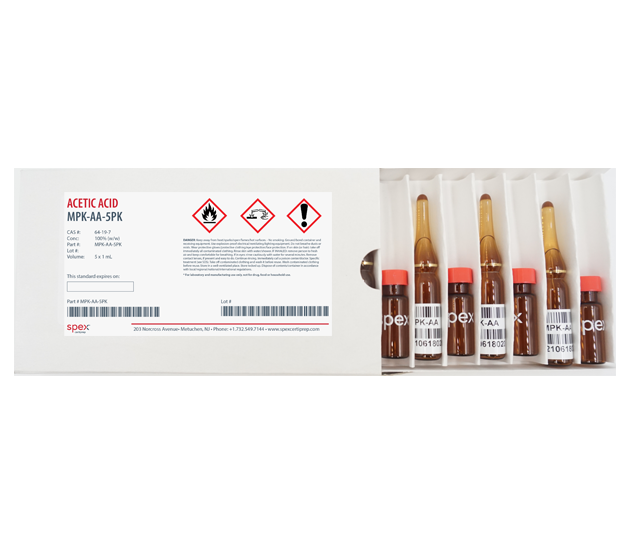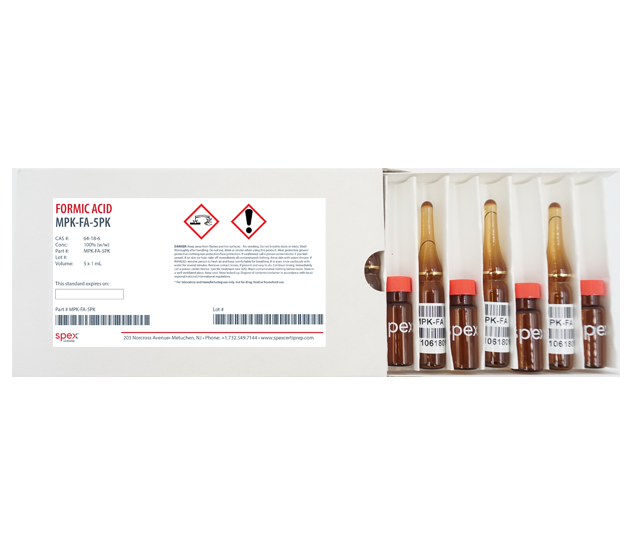Mobile Phase Modifiers for HPLC and LC/MS
• Conveniently packaged for error-free use
• Designed to be directly added to mobile phase reservoirs for easy use
• Ability to mix and match modifiers to create personalized method development kits
High Performance Liquid Chromatography (HPLC) is one of the most common instrumental techniques for analyzing mixtures of organic compounds in analytical labs around the world. HPLC is a complex process that depends on each molecule’s ability to interact with the mobile phase that carries it through the column, the solid phase that fills the columns, as well as interactions between the different molecules in the sample.
These interactions are particularly important in LC/MS when the molecules being analyzed need ionizable functionality. Many labs are now using reverse-phase high performance chromatography (RP-HPLC) where the stationary phase is hydrophobic or nonpolar. However, reverse-phase columns may contain open silanol groups, which may interact with polar molecules. This leads to reduced resolution, tailing of peaks, and reduction in column life.
The addition of modifiers, like trifluoracetic, acetic and formic acid, and the corresponding ammonium salts, is widely used to improve the quality of RP-HPLC chromatography analyses. These modifiers adjust the pH of the mobile phase and provide the chemist with the ability to control the level of ionization of each molecule.
Modifiers can form ion pairs with the Lewis-basic and Lewis-acidic sites on the solvent-accessible regions of the stationary phase. This decreases the opportunity for analytes to interact with these regions and results in increased column longevity and performance.
Mobile Phase Modifiers Brochure
Optimizing Your Mobile Phase Technical Note



